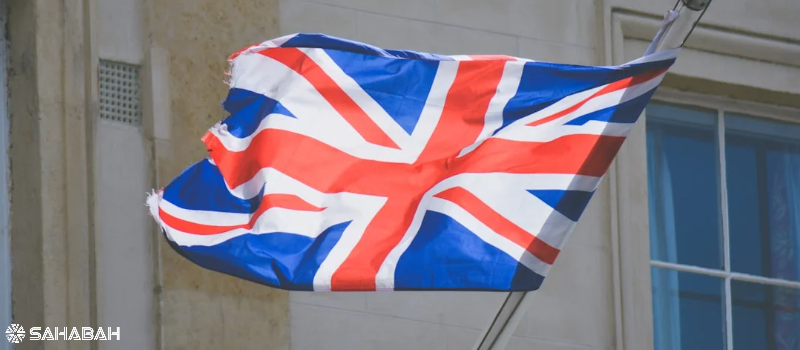The relationship between the United Kingdom and Israel has been a complex and often controversial topic. As the UK government navigates its position on Israel, it must balance various factors, including historical ties, economic interests, and international obligations. This article delves into the UK’s stance on Israel, exploring the current government’s policies, public opinion, and the potential future of this dynamic relationship.
Historical Context
The UK’s involvement in the establishment of Israel dates back to the early 20th century. During the Mandate period, the UK played a significant role in shaping the region’s political landscape. In 1917, the British government issued the Balfour Declaration, which expressed support for the establishment of a “national home for the Jewish people” in Palestine. This decision laid the foundation for the creation of the state of Israel in 1948.
However, the UK’s stance on Israel has evolved over time, influenced by key events and decisions. During the 1930s and 1940s, the UK faced growing tensions between the Jewish and Arab populations in Palestine, leading to the 1939 White Paper, which placed restrictions on Jewish immigration. This decision was met with criticism from the Zionist movement and ultimately contributed to the UK’s withdrawal from Palestine in 1948.
In the decades following the establishment of Israel, the UK’s relationship with the country has been marked by both cooperation and tension. The UK has maintained diplomatic ties with Israel, but has also been critical of certain Israeli policies, particularly regarding the occupation of the Palestinian territories and the expansion of settlements.
Current UK Government’s Position on Israel
The current UK government, led by Prime Minister Rishi Sunak, has maintained a generally supportive stance towards Israel. In 2023, Sunak reaffirmed the UK’s commitment to Israel’s security and expressed his opposition to the Boycott, Divestment, and Sanctions (BDS) movement, which aims to pressure Israel over its treatment of the Palestinians.
However, the government has also called for a two-state solution to the Israel-Palestine conflict and has condemned Israeli settlement expansion in the West Bank. In a statement to the House of Commons, Foreign Secretary James Cleverly said, “The UK’s position on the Israeli-Palestinian conflict is clear: we support a negotiated two-state solution as the best way to deliver lasting peace.”
The UK government has also been critical of specific Israeli actions, such as the 2023 military operation in Gaza, which resulted in civilian casualties. In response, the UK joined other members of the UN Security Council in calling for a ceasefire and the protection of civilians.
Public Opinion in the UK on Israel
Public opinion in the UK regarding Israel is diverse and often polarized. Surveys and polls suggest that while many Britons are sympathetic towards Israel, there is also significant criticism of the country’s policies towards the Palestinians.
A 2022 poll by the Britain Israel Communications and Research Centre (BICOM) found that 49% of the British public believe the UK should maintain its current level of support for Israel, while 29% believe the UK should reduce its support. The poll also revealed that 45% of respondents believe the UK should recognize a Palestinian state, while 32% oppose such a move.
Factors such as media coverage and personal experiences shape public opinion on this complex issue. Some Britons are influenced by the portrayal of the Israeli-Palestinian conflict in the media, which can sometimes be perceived as biased or one-sided. Others may have personal connections or experiences that inform their views on the matter.
It’s worth noting that public opinion on Israel is not monolithic within the UK. Differences in opinion can be observed across various demographic groups, political affiliations, and geographic regions.
Economic and Trade Ties Between the UK and Israel
The UK and Israel enjoy strong economic ties, with trade and investment between the two countries reaching record levels in recent years. The UK is one of Israel’s largest trading partners, and the two countries collaborate in various sectors, including technology, life sciences, and renewable energy.
In 2022, the total value of trade in goods and services between the UK and Israel was estimated at £5.5 billion. The UK is a significant investor in Israel, with British companies operating in a wide range of industries, from financial services to high-tech startups.
The two countries have also signed several trade agreements to facilitate economic cooperation. In 2019, the UK and Israel signed a trade and partnership agreement to ensure continuity of trade relations after the UK’s withdrawal from the European Union. This agreement covers areas such as goods, services, investment, and government procurement.
Beyond trade, the UK and Israel collaborate on research and development projects, particularly in the fields of science, technology, and innovation. The two countries have established joint research funds and programs to support collaborative projects in areas like artificial intelligence, cybersecurity, and renewable energy.
Security and Intelligence Cooperation
The UK and Israel also cooperate closely in matters of security and intelligence. The two countries share information and work together to combat terrorism and other security threats. This cooperation is seen as mutually beneficial and has helped to strengthen the relationship between the two nations.
In the aftermath of terrorist attacks, the UK and Israel have often stood together in condemning such acts and reaffirming their commitment to combating extremism. For example, following the 2023 Hamas attack in Gaza, the UK government expressed its support for Israel’s right to self-defense and called for a ceasefire to protect civilian lives.
The UK and Israel also collaborate on military and defense-related matters. The two countries have participated in joint military exercises and have shared expertise in areas such as cybersecurity and intelligence gathering. This cooperation is seen as crucial in addressing shared security challenges in the region.
It’s worth noting that the UK’s security cooperation with Israel has not been without controversy. Some critics have raised concerns about the UK’s involvement in the sale of military equipment to Israel, particularly in the context of the Israeli-Palestinian conflict and the treatment of Palestinian civilians.
Cultural and Academic Exchanges
Beyond economic and security ties, the UK and Israel also share strong cultural and academic links. The two countries collaborate in various fields, including arts, education, and research. These exchanges help to foster mutual understanding and strengthen the bonds between the two nations.
In the cultural sphere, the UK and Israel have collaborated on numerous projects, from art exhibitions and film festivals to music performances and literary events. The British Council, for example, has played a significant role in facilitating cultural exchanges between the two countries, supporting initiatives that promote understanding and dialogue.
In the academic realm, the UK and Israel have established numerous partnerships and collaborations. British universities have partnered with their Israeli counterparts on research projects, student exchanges, and joint degree programs. These collaborations have contributed to advancements in fields such as science, technology, and medicine.
The UK and Israel also work together to address global challenges, such as climate change and sustainable development. The two countries have collaborated on initiatives that leverage their respective strengths in areas like renewable energy, water management, and agricultural technology.
Criticism and Controversies
Despite the UK’s generally supportive stance towards Israel, the government has faced criticism from various groups and individuals. Some argue that the UK is not doing enough to hold Israel accountable for its treatment of the Palestinians, while others believe that the UK is too critical of Israel.
One area of controversy has been the UK’s position on the Israeli occupation of the Palestinian territories and the expansion of settlements in the West Bank. The UK has consistently condemned these actions as a violation of international law and an obstacle to a peaceful resolution of the conflict. However, some critics argue that the UK’s response has been insufficient and that it should take stronger measures, such as imposing sanctions or suspending trade agreements.
Another point of contention has been the UK’s approach to the BDS movement. While the government has expressed its opposition to the BDS campaign, some argue that this stance undermines the right to freedom of expression and the ability of individuals and organizations to engage in peaceful protest.
These debates often play out in the UK Parliament, where members from across the political spectrum have voiced their views on the UK’s relationship with Israel. In 2023, for example, a group of former Supreme Court justices wrote an open letter to the government, urging it to take a stronger stance against Israeli settlement expansion and to support the International Criminal Court’s investigation into alleged war crimes in the Palestinian territories.
Future Prospects for UK-Israel Relations
As the UK navigates its relationship with Israel, there are both challenges and opportunities. On the one hand, the UK must balance its support for Israel with its commitment to international law and human rights. This can be a delicate balancing act, as the UK seeks to maintain its influence and leverage in the region while also upholding its principles and values.
On the other hand, the UK has the potential to play a constructive role in promoting peace and stability in the region. As a permanent member of the UN Security Council and a key player in international diplomacy, the UK could use its influence to encourage dialogue, mediate disputes, and support efforts to find a just and lasting solution to the Israeli-Palestinian conflict.
One area where the UK could potentially make a difference is in the pursuit of a two-state solution. The UK government has repeatedly expressed its support for this approach, which would involve the establishment of an independent Palestinian state alongside the state of Israel. However, the path to achieving this goal remains fraught with challenges, and the UK will need to work closely with other international partners to make meaningful progress.
Another area of potential cooperation is in the realm of economic and technological collaboration. The strong ties between the UK and Israel in these areas could be leveraged to promote shared prosperity and address global challenges, such as climate change and sustainable development.
Ultimately, the future of the UK-Israel relationship will depend on a range of factors, including the political leadership in both countries, the evolution of the Israeli-Palestinian conflict, and the broader geopolitical landscape. As the UK continues to navigate this complex relationship, it will need to carefully balance its various interests and obligations, while also remaining true to its principles and values.
In conclusion, the UK’s stance on Israel is a complex and multifaceted issue. While the current government maintains a generally supportive stance, there are ongoing debates and controversies surrounding the UK’s approach. As the UK continues to navigate this relationship, it will need to carefully balance its various interests and obligations, while also exploring opportunities to play a constructive role in promoting peace and stability in the region.
Does UK Support Israel?
The UK Government has historically supported Israel but also advocates for peace and a two-state solution to the Israel-Palestine conflict.
How does the UK respond to ceasefire agreements between Israel and Palestine?
The UK often calls for immediate ceasefires and works with international partners, such as the UN Security Council, to support peaceful resolutions to conflicts in the region.
Does the UK provide military weapons to Israel?
The UK has supplied military weapons to Israel in the past, which has raised concerns among aid workers and advocates of international humanitarian law.
What is the UK’s stance on the Israel-Hamas conflict in the Gaza Strip?
The UK condemns violence and advocates for safeguarding civilians in the Gaza Strip, often calling for both sides to respect international law and cease hostilities.
How does the UK Foreign Secretary David respond to the ongoing conflict between Israel and Palestine?
The UK Foreign Secretary David typically issues official statements condemning violence and calling for dialogue and diplomatic solutions to the conflict.
Does the UK support Israel’s actions in the occupied Palestinian territories?
The UK has expressed concerns over Israel’s actions in the occupied Palestinian territories and has called for the protection of Palestinian civilians and respect for international law.





